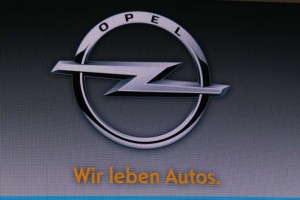A day after CEO Dan Akerson told shareholders General Motors had to achieve a European turnaround to boost margins and rebuild its stock price, the automaker has revealed it is in talks with its German union about closing one of its excess plants.
GM also hopes to win approval to delay a planned wage hike at its troubled Opel subsidiary. But the quid pro quo would be that GM would delay involuntary layoffs of members of the powerful IG Metall union even after the factory in Bochum were to close. The turnaround plan under discussion would permit buyouts and other steps meant to reduce its excess workforce.
GM of Europe has been mired in the red for a dozen years, running up another $747 million in red ink in 2011 despite earlier hopes the subsidiary would finally break even – with losses before interest and taxes amounting to another $256 million during the first quarter of this year. The Continent’s worsening economic crisis only exacerbates the situation, as does an overall problem with European excess automotive capacity.
“We must work towards sustainable positive results for our operations in Germany,” Opel CEO Karl-Friedrich Stracke said in a statement issued Wednesday. “Opel needs to adjust its business in a way that enables profitability even in difficult market conditions. With 2012 industry volumes expected to be down 20 percent from demand in the past five years, waiting longer to act would be irresponsible.”
Stracke’s comments and the preliminary details released by GM echo the dire tone taken by GM Chairman and CEO Akerson during the company’s annual board meeting the day before. Citing the maker’s record 2011 earnings, the executive said “We had a good year. Not a great year” because of Europe.
(For more on that story, Click Here.)
GM has already achieved agreements with unions in Portugal and the U.K., where it is also looking to slash expenses, likely with other capacity cuts. But the situation in Germany, home to Opel, was seen both as the most dire and the most difficult to resolve. Even in the worst of times IG Metall has been reluctant to accept cuts. In fact, the union just negotiated major pay hikes with Volkswagen and other German-based competitors to GM. But it has become increasingly apparent to all sides that desperate measures are necessary to reverse Opel’s seemingly endless decline, observers suggested.
The automaker isn’t relying solely on its union workers to turn things around. Earlier this year it announced a preliminary joint venture with the also-troubled French automaker PSA Peugeot Citroen. The new partners plan to work on a number of projects designed to share costs and improve economies of scale. That likely will include joint development of some key products. Annual savings are projected to exceed $1 billion once things fall into place.
That is in line with a similar – if more expansive – partnership announced by the other major French automaker, Renault and Germany’s Daimler AG. Along with Renault’s Japanese Alliance partner Nissan, they expect to share work on a number of product programs and it is possible, even likely they might produce vehicles for one another.
It is unclear if GM would wind up building Peugeot or Citroen models but in its latest statement the U.S. auto giant hints Opel assembly lines could produce vehicles for other markets. That’s a significant development because of the generally high cost of assembling vehicles in Western Europe.
“The main points of the proposed business plan go in the right direction, but we still need to hold talks concerning many of them,” Opel works council Chairman Wolfgang Schaefer-Klug said in a statement. “The readiness of the management to talk about excluding compulsory separations until the end of 2016 for all German plants was a necessary precondition for this. Our goal is to come to a common solution for Opel and all employees.”
As for the Bochum plant, GM appears willing to keep it open until the end of the planned production cycle for its Opel Zafira model, around 2016.
Meanwhile, the maker also would be ready to commit to investing in the development of 23 new vehicles and new powertrains over the next four years.
European industry analysts have repeatedly warned that Opel cannot cost-cut its way back to prosperity. It has to rebuild its weak image – and that will only happen with the introduction of truly competitive new product.

